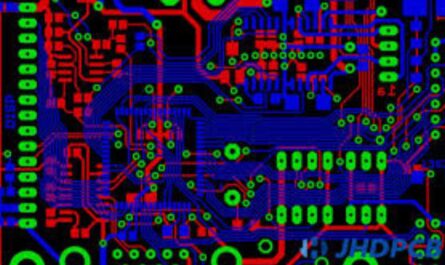Understanding the Importance of Water Meters
With growing populations and changing climate patterns, water is becoming an increasingly scarce and valuable resource around the world. As populations rise, demand for water grows as well putting more strain on existing water infrastructure and supply networks. Monitoring and measuring water usage has become essential to ensure sustainable and equitable access to water for all. Water meters play a vital role in this process by providing accurate measurements of water consumption.
What is a Water Meter?
A water meter is a device used to measure the quantity of water used in a home or business. Residential water meters are usually installed outside a property, where the water main enters. They work by measuring the flow of water in and out of a property. Commercial and industrial water meters may also measure water quality parameters like pressure and temperature.
Modern water meters use advanced technologies like ultrasonic sensing to accurately track water usage in gallons or liters. Some also have built-in data loggers and wireless communication capabilities to remotely transmit readings to water utility companies, eliminating the need for manual meter readings. This allows for more frequent and accurate billing as well as early detection of leaks.
Importance of Water Metering
Water meters play a vital role in efficient water management by helping:
Monitoring Usage
Accurate metering allows water suppliers to monitor patterns of water usage across their networks. This data helps identify leaks, track demand, and plan infrastructure upgrades more efficiently based on actual consumption patterns rather than estimates.
Promoting Conservation
When customers are aware of how much water they are using through meter readings on bills, it encourages more conscious usage and waste reduction practices. Wise usage leads to lowering of overall demand.
Equity in Billing
Metered connections ensure users only pay for the exact amount of water they consume rather than a fixed charge. This fair billing model promotes equity and discourages excessive usage.
Revenue Generation
Accurate metering allows utilities to generate proper revenue through volumetric tariffs for water supply and maintenance of infrastructure. This helps make systems financially sustainable.
Types of Water Meters
There are different types of Water Meters used for tracking water usage:
Positive Displacement Meters
The most common residential meter, it works through rotating discs or pistons that register flow. Requires regular maintenance but provides reliable readings over long periods.
Turbine Meters
Used for larger commercial connections, it features an impeller wheel sensor immersed in flowing water. Provides high accuracy at higher flows but prone to over-recording at low flows.
Ultrasonic Meters
Using non-intrusive ultrasonic sensing, it overcomes issues of other technologies. Highly accurate even at low flows but installation and upfront costs are higher. Ideal for remote areas.
Smart Meters
Integrated with wireless technologies, they automatically transmit readings remotely for real-time usage tracking. However, communications capabilities add to expenses.
Selecting the right meter type depends on flow rates, installation considerations, required accuracy levels and budget constraints of users and water utilities. Regular calibration and replacement ensures optimal performance over the life of water distribution networks.
Ensuring Proper Metering
For water metering to be truly effective and fair, certain best practices must be followed:
Periodic Testing and Calibration
All meters need calibration checks at set intervals to account for drift over time due to wear. This maintains accuracy of measurements.
Timely Replacement
Meters are mechanical devices with finite lifespans. Utilities must plan replacements after 8-10 years to prevent under-recording of consumption due to aging.
Addressing Non-Revenue Water
A portion of supplied water is often unaccounted for due to leaks, theft etc. Utilities must reduce this non-revenue water through active leak detection programs.
Data Management Systems
Meter reading technologies must be integrated with centralized database and billing systems for efficient operations management.
Community Awareness Programs
People need to understand the objectives and economics behind metering to cultivate responsible water usage behavior at grassroots.
With proper implementation of water metering supported by the right policies, utilities can optimize usage, planning and revenue while customers get full value from this scarce natural resource. When all stakeholders cooperate, it leads to more equitable and sustainable water resource management.
With growing global water stress, efficient and transparent monitoring of water supply networks is becoming imperative. Water meters play a central role in collecting the consumption data needed to strengthen water security. When implemented correctly using appropriate meter types and supported by effective policies, water metering delivers manifold benefits like conservation, equitable pricing and enhanced utility financial viability. It is a win-win solution for both water providers and users to secure access to this vital natural resource.
*Note:
1. Source: Coherent Market Insights, Public sources, Desk research
2. We have leveraged AI tools to mine information and compile it




